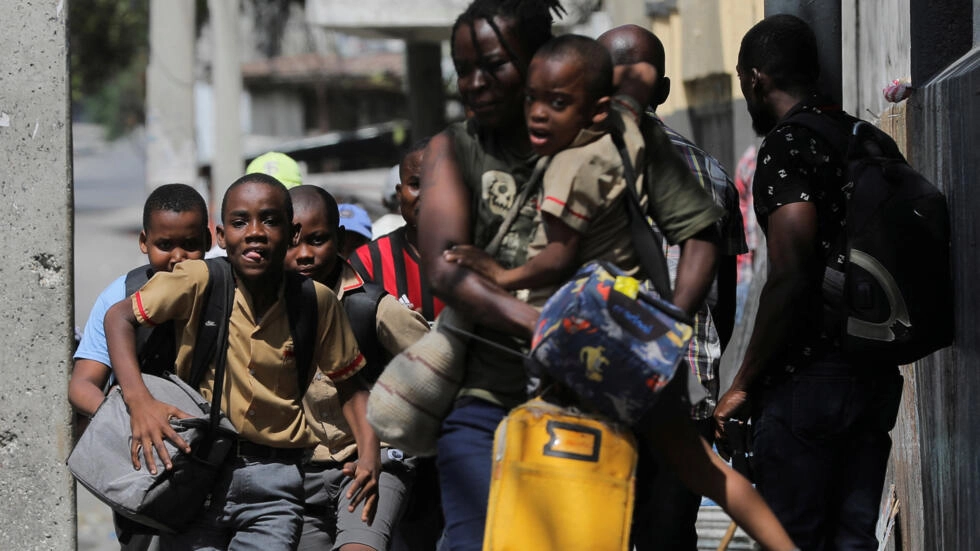Kidnappings, rapes, murders, shootings, all kinds of crimes happen in broad daylight and with terrifying frequency in Haiti. In this Central American country, the population faces a nightmare of violence from armed gangs. RFI spoke with physician Jean William Pape, a member of the WHO scientific committee and founder of Gheskio, a health NGO in Haiti. He warns the international community that it is time to avoid “a massacre like the one in Rwanda.
Mikael Ponge, RFI
According to the UN High Commissioner for Human Rights, Volker Türk, armed groups currently control almost all of the Haitian capital Port-au-Prince. The National Network for the Defense of Human Rights estimates that at least 60 people were killed last week alone in clashes between rival gangs in the city.
Jean William Pape, who is also a professor of medicine at Cornell University in New York, describes this horror scenario.
RFI: What is the situation in Haiti today?
Jean William Pape: There is a completely desperate situation in Haiti. We no longer have a government, we no longer have a state, the insecurity situation is getting worse every day, we see it affecting more and more sectors of society, children can’t go to school, there is not a single group of society that doesn’t have cases of kidnapping, doctors in particular. I think there are more than ten kidnappings since the beginning of the year: priests are kidnapped, teachers are kidnapped, small street traders are kidnapped. So it is a phenomenon that nobody escapes from. This is a wake-up call that should have been launched many months ago.
Why did you make reference to Rwanda?
JWP: We have many characteristics in common with Rwanda. We have about the same number in terms of population, we have a comparable GDP, and a very mountainous country of about the same area. And what is happening in our country now is that there are a lot of heavy weapons in circulation, in the hands of civilians and paramilitary groups. The police are completely powerless, we have an army with few men and few weapons. And there is also incitement to violence in the social networks. We are heading towards a civil war that is going to cause a considerable massacre, precisely because of the protagonists that are on the ground, because of the political differences, and also because of the amount of weapons that exist in Haiti.
“Green light for hell”
The international community has decided, for now, not to intervene militarily in the country, but to work towards a policy of sanctions against those responsible in the political field and against companies in the economic sector. Canada has sent maritime and air patrols. How do you evaluate this attitude and the response of the international community?
JWP: In the case of Canada, it would have been more correct and honest to say that it has no experience in fighting armed groups. So I don’t think it’s very serious, because since the sanctions the situation has actually gotten worse. It is as if we have given the green light or stepped on the gas to make this country hell. I say frankly: the first people responsible for the current crisis are clearly the Haitians who, because of their own narrow interests, are unable to reach an agreement, even on an issue as urgent as insecurity, that is clear.
The international community, however, also bears a lot of responsibility, because this deterioration occurred before your eyes. So you also have some responsibility. Help us, we will do it together, because we Haitians are also responsible. We will do it together, and at the moment we cannot do it alone, because Haiti is completely forgotten. There is talk about Ukraine, about the earthquake in Turkey, but there is a genocide going on here and we are letting the situation fester. And I think it is better to avoid precisely this massacre, which is getting worse almost every day.
